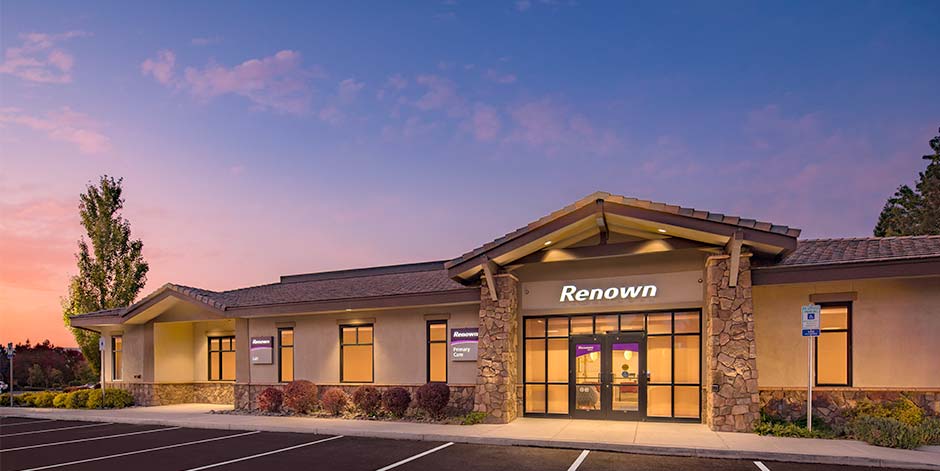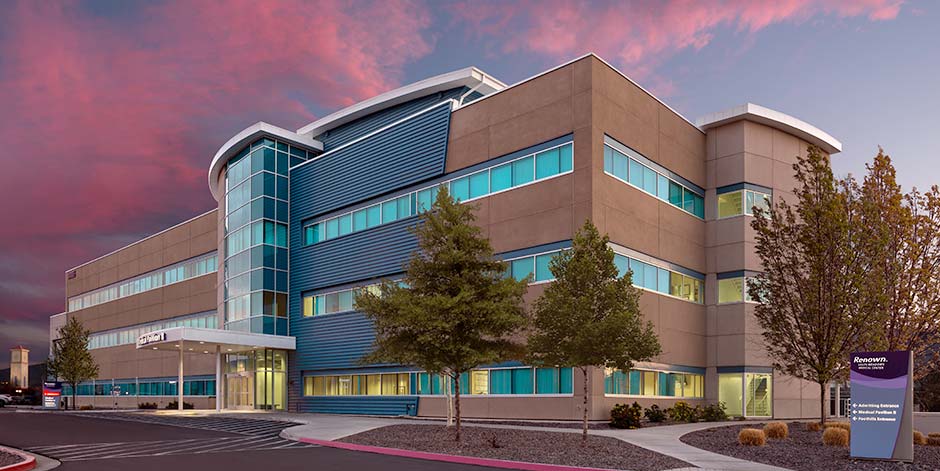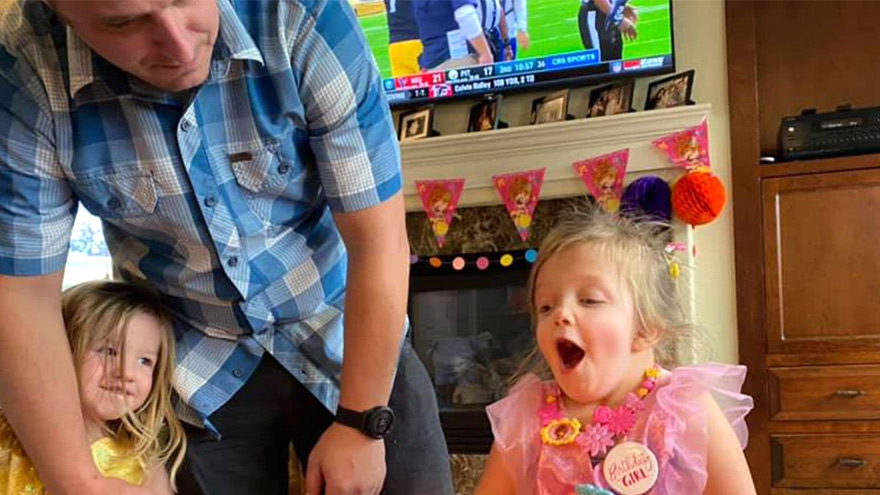Buscar
Results for 'imaging'
Clear-
Neurorradiología intervencionista
The Interventional Neuroradiology team at Renown Health offers minimally invasive treatments and diagnostics and cares for various brain, head, neck and spine conditions. We focus on emergent and state-of-the-art care for acute stroke, aneurysms, arteriove for acute stroke and aneurysms, and arteriovenous malformations.
-
 Renown Medical Group - Los Altos NorthRenown Medical Group - Los Altos NorthHorarios
Renown Medical Group - Los Altos NorthRenown Medical Group - Los Altos NorthHorarios
Lun. a vie.7 a.m. - 5 p.m.Sáb. y dom.Cerrado -
 Renown Institute for Heart & Vascular Health - Double RRenown Institute for Heart & Vascular Health - Double RHorarios
Renown Institute for Heart & Vascular Health - Double RRenown Institute for Heart & Vascular Health - Double RHorarios
Lun. a vie.8 a.m. - 5 p.m.Sáb. y dom.Cerrado -
Neurodiagnóstico
The Neurodiagnostics team at Renown Health offers a wide range of comprehensive imaging, electrical impulse detection, and other neurodiagnostic procedures to help doctors quickly and accurately diagnose neurological conditions, allowing them to create an effective treatment plan. Using neurodiagnostics, our neurologists can diagnose a variety of dysfunctions in the nervous system, such as: Autonomic disorders Brain tumors Epilepsy Head trauma Movement disorders, such as Parkinson’s disease Multiple sclerosis Neuromuscular diseases Peripheral nerve injuries Sleep and breathing disorders Spinal cord injuries Stroke Vascular disease
-
Electrophysiology
Cardiac Electrophysiology Electrophysiology (EP) is the study of the electrical system of the heart. Renown Health's highly trained cardiac electrophysiology team assesses the heart's electrical system and diagnoses abnormal heartbeats or arrhythmia. As the only IAC Cardiac Electrophysiology accredited facility in Nevada, we proudly demonstrate exemplary care and quality for all of our patients.
-
Rehabilitación cardíaca
Intensive Cardiac Rehab (ICR) at Renown Health is a medically supervised program designed to improve cardiovascular health after a significant heart condition or procedure. Since its inception in 2016, this program has been a pioneer in the region and a leading force on the west coast, prioritizing excellence and consistently achieving one of the highest graduation rates among all Pritikin-certified ICR programs nationwide.
-
Cardiac Catheterization
Renown Health is recognized by the American College of Cardiology (ACC) as an Accredited Chest Pain Center with Primary PCI distinction. PCI designation means we specialize in percutaneous coronary intervention (PCI) - also known as coronary angioplasty - as the primary treatment for acute heart attacks. We strive to ensure patients experiencing an acute heart attack receive rapid treatment in the cardiac catheterization lab to minimize damage to the heart muscle. In addition, Renown Health received the Chest Pain – MI Registry Platinum Performance Achievement Award in 2022 and 2021.
-
Experto en escoliosis pediátrica de Reno da nuevas esperanzas a una niña
For Michael J. Elliott, MD, a pediatric orthopedic surgeon specializing in scoliosis, it’s just another day helping patients. But to local five-year-old Makenna Christensen, her substantial spine correction is life-changing. Though her journey to body confidence was months in the making, her smiles are a reminder that a thorough, thoughtful treatment plan can yield amazing results. A Surprising Start Words don’t adequately describe the feelings you have when you unexpectedly learn your child has a birth defect. For Nicole and Nick Christensen it was a shocking surprise. During Nicole’s sonogram appointment something unusual was seen. After an amniocentesis, their baby girl was diagnosed with Noonan syndrome, which can affect a child’s height and bones. To prepare, the couple read all they could on the subject. Fortunately their daughter Makenna, was born full term and healthy. Shortly after birth, Makenna had some feeding issues and returned to the hospital. Although they resolved and she had no major complications, both parents felt unsure about their newborn’s future. With the help of Nevada Early Intervention Services , Makenna’s development was monitored until she was three years old. “Her posture has been an issue her whole life,” says Nicole. Nick also noticed when Makenna started walking her range of motion was poor. It was especially noticeable when she got dressed and raised her arms to put on clothing. Nicole observed Makenna was falling a lot in preschool. She asked Makenna’s pediatrician about physical therapy to support her coordination and muscle tone. Although physical therapy was helping Makenna, her therapist suggested Nicole seek the opinion of Dr. Michael Elliott, a pediatric specialist in orthopedics at Renown Children’s Hospital. Scoliosis Casting - A Successful Treatment Approach Dr. Elliott diagnosed Makenna with scoliosis, an abnormal curvature of the spine. While this condition is most common during a teenage growth spurt, it can also happen in early childhood. Affecting about four million people in the United States, it is estimated 20 percent of all spinal deformities in the U.S. are people living with scoliosis. Makenna’s spinal curve was significant – over 30 degrees. Through years of experience Dr. Elliott opted to put Makenna in a spinal cast, instead of multiple surgeries. “My approach is to postpone surgery as long as possible - it is tough for the patient and families,” he says. “Often excellent results can be achieved through non-invasive treatments such as, casting and bracing.” Nicole appreciated Dr. Elliott’s reassurance through the treatment plan. “It was obvious through the X-rays that there was a significant issue,” she shares. “He guided us through the timing and process and how correcting it sooner would help keep her future growth on track.” For seven months Makenna wore a cast that looked like a tank top, bracing her spine while allowing movement. Now she wears a hard plastic brace, specially fitted to her body. “Kids tolerate casting well,” explains Dr. Elliott. “It is a 45-minute procedure. The patient sleeps while their spine is put into traction as the cast dries.” She will continue to wear larger braces as she grows, eventually only wearing them at night. A Straight Path into the Future Dr. Elliott admits, “Not every cast is a cure. Two thirds of a child’s spinal growth happens by the age of five. Getting past the five-year mark means fewer surgeries. It’s wonderful to see Makenna’s body image improved.” Nicole agrees, “The way Makenna holds herself is completely different. She’s more confident on her feet and more balanced.” She can now play with her sister Aria, 4, and brother Lexi, 8 months, without the fear of falling. Nick is in awe of the improvements she has made, “Seeing her thrive more has been wonderful.” The Christensen’s are hopeful about the future. “Makenna is doing really good. She’s wearing her hard brace full time and her growth is consistent,” expresses Nicole. “She’s even starting swim lessons this week.” With mask wearing at every doctor visit during the COVID-19 pandemic, Makenna and Dr. Elliott look forward to seeing each other’s smiles in the future. Makenna’s story highlights the over 18 different specialty options for children locally at Renown Children’s Hospital.
Read More About Reno Pediatric Scoliosis Expert Gives New Hope to Young Girl
-
Parkinson's Disease Know The Important Symptoms
Parkinson’s disease – you may have heard of it because Neil Diamond and Ozzy Osbourne were recently diagnosed with it. Or perhaps you know Michael J. Fox is a strong advocate and funds research through his foundation. Neurologist Jonathan Spivack, MD, discusses this disease, while physiatrist Stephanie Jones, DO, explains how physical therapy can help as a supplemental treatment. According to the Parkinson’s Foundation about ten million people worldwide currently have this disease. What is Parkinson’s Disease? “Parkinson’s disease is a neurodegenerative disease that progresses slowly and definitely, though at variable rates,” explains Dr. Spivack. “Symptoms go beyond the classic motor changes. It results from a loss of specific dopamine-producing brain cells. Specifically, this loss is likely due to a mix of genetic and environmental factors,” he adds. Dopamine allows communication between particular nerve cells responsible for movement. If you have Parkinson’s dopamine levels gradually drop, causing a loss of motor skills. Generally, most patients with the disease are over age 65. Early Signs and Symptoms Diagnosing Parkinson’s can be difficult as some of the symptoms happen during the natural aging process. The Parkinson’s Foundation identifies the following 10 early signs of PD: Tremors or shaking of your hand, fingers or chin Small handwriting Loss of smell Sudden movements during sleep Stiffness when walking or moving Constipation Softer or lower voice volume Mad facial expression Feeling dizzy or faint Hunching or stooping posture A single sign may not point to the disease, but if you (or a loved one) has multiple signs, talk to your healthcare provider.
Read More About Parkinson's Disease Know The Important Symptoms
-
Mantener su cerebro sano, sin importar su edad
It’s true there is no cure for dementia, yet studies suggest your life choices today can reduce brain decline in the future. How important is diet to brain health? Food is the foundation of your body. Fats, carbs and protein provide the energy for your cells and metabolism. So the quality and amount of food you eat directly affects your brain. Specifically, researchers are paying special attention to the link a high sugar diet and/ or an unhealthy fat diet may have on your brain. Your brain on sugar According to the Alzheimer’s Association, when too much sugar is in the bloodstream for long periods of time, it can damage the brain cells. Many people with diabetes may develop brain abnormalities, and these changes may increase chances of dementia — research is still being done to understand this connection. Many U.S. adults have prediabetes with blood sugar higher than normal. Insulin resistance often leads to diabetes. Insulin resistance has been linked to metabolic syndrome, which is a precursor for cardiovascular and cerebrovascular disease (heart attack, stroke). Some signs of metabolic syndrome include: Large waist size (40 inches or more for men, 35 inches and up for women) Low HDL (good) cholesterol level Higher than normal blood pressure — 130/85 and above Current research suggests too much sugar in the blood causes inflammation, which can damage brain cells. High carbohydrate foods, such as sweetened beverages, chips, white rice, white potatoes, bagels, cereals and desserts, have been shown to raise blood sugar. Although anyone can get diabetes, Hispanic Americans and African Americans are at greater risk.
Read More About Keeping Your Brain Healthy, No Matter Your Age
-
8 pruebas de evaluación de la salud importantes para hombres
Unfortunately, men are less likely to visit their doctor for exams, screenings, and consults than women. So with the help of Bonnie Ferrara, MD of Renown Health, we've put together a list of eight screenings to help men stay on top of their health game. 1. Blood Pressure Tests Ages 20+ Blood Pressure tests measure the pressure in your arteries as your heart pumps. Biennial (every two years) checks are recommended if you have normal blood pressure or more frequently if you have high blood pressure (hypertension) or low blood pressure (hypotension). The United States Preventative Services Taskforce cites normal blood pressure below 120 systolic (top number) and 80 diastolic (bottom number). 2. Cholesterol Screening Ages 20+ High levels of cholesterol increase your risk of stroke and heart disease. A simple blood test will help your healthcare provider determine your numbers and if you're at risk. If you have a family history of diabetes or heart disease, you may need yearly screenings. But, again, your doctor can provide the best course of action.








